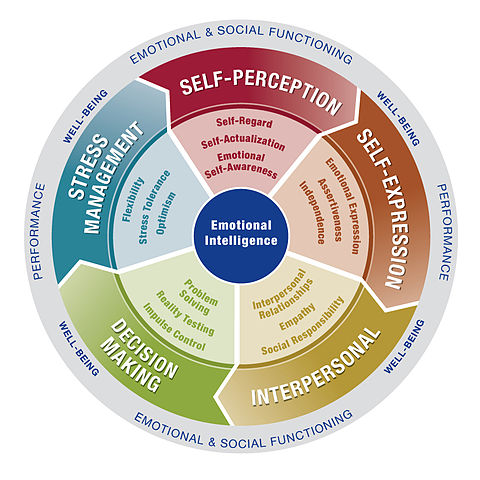Emotional intelligence and psychological maladjustment in adolescence: A systematic review
This study focused on emotional intelligence (EI) and its association with psychological maladjustment in adolescence as one of the popular areas of research. It explored many aspects in identifying the parameters under study, but it must be noted that there exist a diverse range of EI measurements and aspects of psychological maladjustments under examination that often complicate the process of synthesizing the findings and applying them in practice. As such, the study sought to review the practical extent of emotional intelligence and adolescents’ emotional problems through a systematic review that encompassed other aspects such as eating disorder symptoms, addictions, and maladaptive coping.

In theory, it is commonly assumed that people with the capacity to perceive and express emotions to their emotional experiences, and are able to regulate their emotions will elicit lower psychopathologies that are rooted in emotional disturbances. The current study draws greatly from previous reviews and meta-analyses that strongly suggest that emotional intelligence is associated with lower psychological maladjustment and better well being in adults. Whether the same is true in adolescents remains much less well studied. Therefore, some of the previous studies did not consider possible age-related differences, and few have explored links between EI and adolescent-specific psychological maladjustment issues, such as eating disorders. The lack of sufficient understanding poses a significant challenge to both research and clinical progress.
The research design was based on exhaustive literature review with in depth key searches in both English and Spanish. The inclusion criteria used was based on four spheres emphasis on the studies being: based on a theoretical model of EI, empirical, they measured SI and any other variables and whether they used adolescent participants. The findings indicated that out of the 32 studies, 20 studies assessed emotional intelligence with self-report instruments, 8 measured it through tests of maximum performance while the rest assessed EI using both a test of maximum performance and self-report. Based on the study finding, it can be concluded that EI is generally negatively associated with less substance abuse and with better coping strategies. However, the associations differed slightly depending on whether EI was evaluated based on self-reporting or by testing of maximum performance.
Similarly, there seem to be a close correlation between AEI and psychological maladjustment, which is also inferred between TEI and maladjustment. Since the present study focused on the relationship between EI and its association with lower psychological maladjustment, the results combined suggest that EI has incremental validity for predicting psychological adjustment, beyond other predictors such as optimism/pessimism, verbal skills, self-esteem, personality dimensions, and intelligence. However, it must be appreciated that in the literature review several limitations were identified with the most common being: most studies were cross-sectional and few were longitudinal and experimental, only eight of the 32 studies assessed emotional intelligence with tests of maximum performance and there are studies focused on diverse variables, some of which are poorly understood, especially in adolescents.
You have just read a summary of the research paper: Resurrección, D. M., Salguero, J. M., & Ruiz-Aranda, D. (2014). Emotional intelligence and psychological maladjustment in adolescence: A systematic review. Journal of adolescence, 37(4), 461-472.

